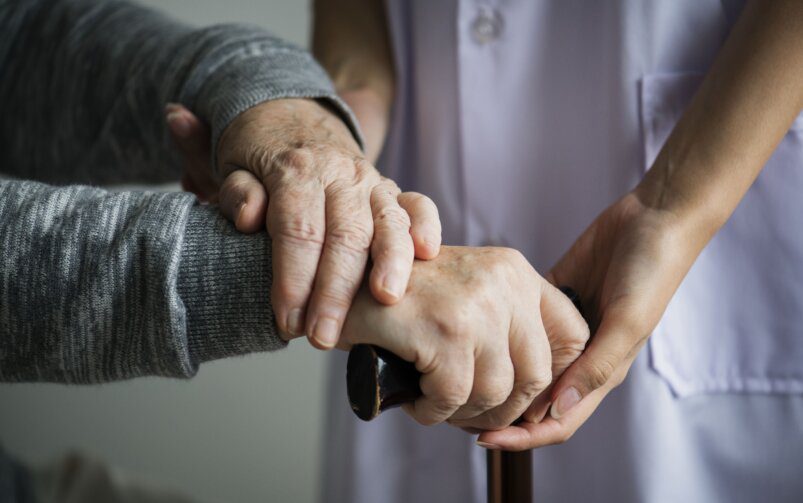
Without proper planning, the value of your home could be eroded by care fees in the future. However, there are measures you can take in your will to protect your estate from care home fees.
This is complicated and should not be attempted without the assistance of a professional will writer.
Could your home be lost to care fees?
Future care expenses could reduce the value of the inheritance you intend to leave behind. With proper planning, a couple may be able to shield a portion of their estate from nursing home costs. This requires specific planning and the assistance of a professional will writer.
Without this planning, care costs could significantly deplete a couple’s assets.
Taking this example into consideration:
Mr. and Mrs. Smith had two adult children and were in their sixties. Their joint estate was valued at approximately £250,000, the majority of which consisted of their £240,000 property and £10,000 in savings. They desired foresight, so they established conventional mirror wills. Their wills stipulated that upon the death of the first spouse, everything would pass to the surviving spouse, and upon the death of the surviving spouse, everything would be divided equally among their offspring.
A few years later, Mr. Smith passed away, and his estate was distributed to Mrs. Smith per his will. Mrs. Smith maintained her independence over the ensuing years. Unfortunately, Mrs. Smith eventually needed residential care.
Mrs. Smith’s assets were valued at £250,000 by the local government, which conducted a financial evaluation of her situation. As this amount exceeded the $23,250 threshold, she would be responsible for the total cost of her residential care. The annual residential home fees were £30,000, so the marital property was sold to cover the cost. Mrs. Smith remained in the residence until her death six years later. During this time, she incurred $180,000 in nursing home expenses (6 x £30,000). When she passed away, her estate was valued at £70,000. This was transmitted to her progeny.
Protecting your home from care fees
This is a typical situation. Frequently, we are asked if there is a method to protect assets through a will so that care home fees do not deplete the estate and leave it to the children.
The good news is that it is possible to safeguard a portion of your estate through the use of specific trust structures in your will.
Using a trust to protect your estate from care home fees
Trusts can enable your surviving spouse to benefit from your estate after you pass away, but they will not actually own the assets. This means that if your surviving spouse is subject to means testing, the assets held in the trust will not be tallied as part of their estate.
A specialist in will-writing must adequately advise you on the available options and their implications. You must be aware of the property’s ownership structure if you own it. There are two methods to jointly own a home: as joint tenants or as tenants in common, and the difference in ownership could have a significant impact on the protection your property receives under your will.
Under joint tenancy, when you pass away, the legal proprietorship of the property automatically transfers to the other co-owner. According to the provisions of your will, it would not be distributed.
Tenants in common ownership entails that each individual owns a specific portion of the property. This portion will be distributed in accordance with your will.
How a trust works
If Mr. and Mrs. Smith were tenants in common with each owning a 50% share, they could use trust wills to protect their share. Mr. Smith could have placed his half of the family home in a trust while allowing Mrs. Smith to continue residing there if he had received the appropriate expert counsel.
Mr. Smith’s stake would be worth £120,000. This £120,000 is held in a trust and is not included in Mrs. Smith’s estate when determining her eligibility for care fees. So the value of Mrs. Smith’s estate is £130,000. Care fees deplete Mrs. Smith’s estate over the next few years, leaving only £23,250. At this point, Mrs. Smith would be eligible for assistance with her care costs.
When Mrs. Smith dies, her remaining $23,250 and the $120,000 that Mr. Smith had deposited in a trust are distributed to her children. Therefore, they would receive an inheritance of £143,250, which is more than double the £70,000 they would have received without the trust.
Obtain guidance on trust wills.
For a trust will to be effective, it is crucial to seek the counsel of a professional will writer. As part of this procedure, you can transfer ownership of your home to tenants in common. As part of our trust will writing service, we can determine whether or not you own your property as joint tenants or tenants in common.
